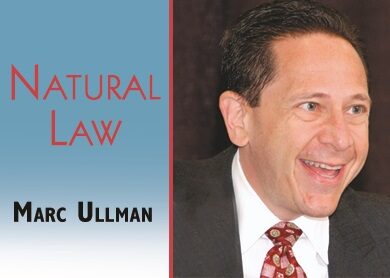With his February 3, 2015, announcement that four national retail chains were selling herbal supplements without any herbs in them, New York Attorney General Eric Schneiderman opened the door on an unprecedented wave of negative publicity for the dietary supplement industry. In the days following the disclosure of the AG’s investigation into this alleged fraud, negative stories or editorials appeared in The New York Times, Washington Post and Long Island Newsday. Strong pushback by industry was largely ignored both by the AG and by the mainstream media, which instead focused on the shifting nature of the investigation, which then turned to another longstanding issue within the industry—compliance with the Dietary Supplement Good Manufacturing Practices. Long-time supplement industry public relations expert Suzanne Shelton has characterized the negative consumer reaction to these stories as “unprecedented.”
 Perhaps as concerning as the negative publicity generated by the NY AG, are developments in Washington D.C., where on April 2, 2015 (two months after the initial press release from AG Schneiderman’s office) 14 Attorneys General submitted a letter requesting a Congressional investigation of the supplement industry to Kansas Senator Jerry Moran and Pennsylvania Representative Joe Pitts, chairmen of the House and Senate subcommittees on product safety and health. The letter continued to cite the initial press release claiming that the New York tests proved that there was a serious problem with fraud in the supplement industry, even though by that time AG Schneiderman had entered into an agreement with one of the retailers acknowledging that the products he attacked were produced in compliance with the FDA's GMP regulations.
Perhaps as concerning as the negative publicity generated by the NY AG, are developments in Washington D.C., where on April 2, 2015 (two months after the initial press release from AG Schneiderman’s office) 14 Attorneys General submitted a letter requesting a Congressional investigation of the supplement industry to Kansas Senator Jerry Moran and Pennsylvania Representative Joe Pitts, chairmen of the House and Senate subcommittees on product safety and health. The letter continued to cite the initial press release claiming that the New York tests proved that there was a serious problem with fraud in the supplement industry, even though by that time AG Schneiderman had entered into an agreement with one of the retailers acknowledging that the products he attacked were produced in compliance with the FDA's GMP regulations.
Now, six months after the initial press release, the repercussions from the NY AG’s initial salvo against the supplement industry continue to reverberate. The Vitamin Shoppe stock has dropped from $42 a share to $36 since early February. Shares of Whole Foods Market have gone from $53 a share to $35, as the company has been impacted not only by attacks on the supplement industry, but also by accusations of fraud relating to the overcharging of its customers in California and New York City. Remarkably, shares of GNC have risen from $43 to $49 over the same period, despite the company’s most recent quarterly report reveling a shortfall of projected earnings and a concerning drop in same store sales.
What happens next remains up in the air, though there are a number of concerning possibilities on the table. These include one or more Congressional Hearings. One could take place before the Senate Select Committee on the Aging. Senator Claire McCaskill’s (D-MO) is a member of this committee who, on June 15, 2015, issued a blistering statement addressed to retailers selling supplements marketed to seniors with exaggerated claims for their ability to prevent or correct age-related memory loss. In the letter, Senator McCaskill castigated industry stating:
"People looking online for cures or treatment for Alzheimer’s Disease and dementia are at their most desperate—and it’s clear from what we’ve found that many of these products prey on that desperation. Right now it’s like the wild west when it comes to the production, marketing, distribution, and sale of these products. I want to figure out why that is and what we can do to better protect America’s seniors.”
The statement also noted that letters were sent to “15 retailers inquiring about their review policies for dietary supplements and what they had done to prevent sales of harmful or fraudulently marketed products in their stores and on their websites and shows.”
The recipients of the letter were: Amazon, QVC, Walgreens, Home Shopping Network, Walmart, Target, CVS, Vitamin Shoppe, Safeway, eBay, Kroger, Vitamin World, GNC, Google and Yahoo; each was asked to provide information about their policies relating to the sale and/or marketing of dietary supplements. Senator McCaskill’s interest in the supplement industry is not new: in June of 2014, while she was Chair of the Senate’s Consumer Protection Subcommittee, the Senator from Missouri held a hearing examining misleading and false claims made by makers of weight-loss products, which you may recall spent considerable time focusing on Dr. Oz's weight loss recommendations.
Whatever the ultimate outcome of these events may be, the message for retailers should be loud and clear: you need to understand what you are selling and take responsibility for ensuring that the products in your store are produced and marketed responsibly. WF

Marc Ullman is a partner in New York City based Ullman, Shapiro & Ullman. His practice focuses on the dietary supplement/natural products industry with a particular emphasis on FDA and FTC compliance issues including Good Manufacturing Practices and product claims.
Published by WholeFoods Magazine Online, 8/5/15









